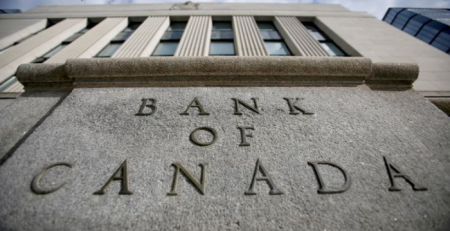Toronto and Vancouver now joined by two more Canadian cities with ‘overvalued’ homes
[Financial Post – September 21, 2020]
Canada’s housing market moderately vulnerable, CMHC says
Overvalued homes continue to be a feature of Canada’s largest cities during the second quarter as the pandemic bit into the number of houses entering the market, according to the country’s largest public mortgage provider. And other Canadian cities are also seeing home prices heat up.
“There was sharp pullback in new listings and resulting low levels of inventory,” the Canadian Mortgage and Housing Corporation said in its second quarter housing market assessment report Monday. “This maintained some pressure on house prices in local housing markets that were seeing strong activity prior to the crisis.”
This triggered increased levels of overvaluations in Vancouver and Toronto, and to a lesser extent in Moncton and Halifax, the federal agency said. Prices accelerated in Ottawa and Montreal, it said.
The level of overvaluation across the country “is likely underestimated” because the temporary surge in disposable income generated by federal income supplements was more than offset by job losses, CMHC Chief Economist Bob Dugan said on a conference call.
“Vancouver and Toronto entered the second quarter of 2020 with a general unwinding of housing market imbalances. However, both experienced an increase in observed house prices for some price measures in the second quarter despite the COVID-19 driven decline in economic and demographic fundamentals,” Dugan said. “This has led to an increase in average overvaluation estimates in both markets.”
“Conversely, in eastern Canada, Ottawa, Montréal, Moncton, and Halifax entered the second quarter of 2020 with emerging imbalances in their respective housing markets,” CMHC said. “Observed house prices in all four had been growing prior to the onset of COVID-19 and continued growing in the second quarter, despite the general weakness in housing market fundamentals. This has led to the detection of moderate evidence of overvaluation in Moncton and Halifax while a sustained increase in the rate of house price growth has led to the signalling of price acceleration in Ottawa and Montréal. The Ottawa, Moncton, and Halifax housing markets are all now assessed at an overall moderate degree of vulnerability.”
Oil price woes exacerbated by the pandemic subdued housing markets in Edmonton and Calgary where house prices fell in the second quarter, although the rate of decline was less than market fundamentals suggested was due, Dugan said. Both markets suffer from overbuilding that began five years ago, he said.
Dugan declined to forecast whether the Greater Toronto Area’s market would increase its vulnerabilities, saying the situation was currently too complex despite its general overvaluation trend.
The economist stood by the agency’s previous forecast that average house prices could decline by up to 18 per cent, noting they had nearly touched a 12 per cent drop in April and that many risks from the pandemic and other factors remained, although prices have rebounded since. “I don’t think we’re out of the woods, yet,” he said.
High household debt, a jump in deferred mortgages, the temporary nature of increased disposable income from federal programs to alleviate pandemic job losses and the pandemic’s impact to delay long-term decisions are all weighing on the market, Dugan said.
“I’m not convinced we have sustainable basis for housing demand with the economic disturbance that’s going on related to COVID-19 and that’s why I stand by the forecast,” he said. “If I’m wrong on the timing of the trough, that could happen, but I certainly believe in the overall trend that there’s some scope for price decline, for weaker demand, and after that sort of resolves itself, eventually a recovery once we have a vaccine in place.”
The CMHC rated the overall Canadian market as moderately vulnerable due to the general weakening of housing market fundamentals such as job losses, despite lower interest rates and federal wage supplements.
Canada’s central bank slashed the benchmark interest rate to 0.25 per cent in March, as the pandemic took hold, from 1.75 per cent in January.
In its quarterly assessments, the agency considers overheating (when sales greatly outpace new listings), price acceleration, overvaluation and overbuilding (when the inventory of unsold housing is significantly above normal levels). Prices are rated overvalued after comparing them to factors such as personal disposable income, population and interest rates.
The agency’s first quarter assessment, released earlier this year, showed overheating and price acceleration remained in Toronto, Hamilton and Vancouver, and in the resale markets of Montréal and Moncton. CMHC cited overbuilding in Edmonton, Calgary and Regina. Vulnerability, or imbalances in the housing market, were deemed low in Ottawa, Winnipeg and the Maritimes. The Canadian market as a whole was also rated moderate in vulnerability then.











